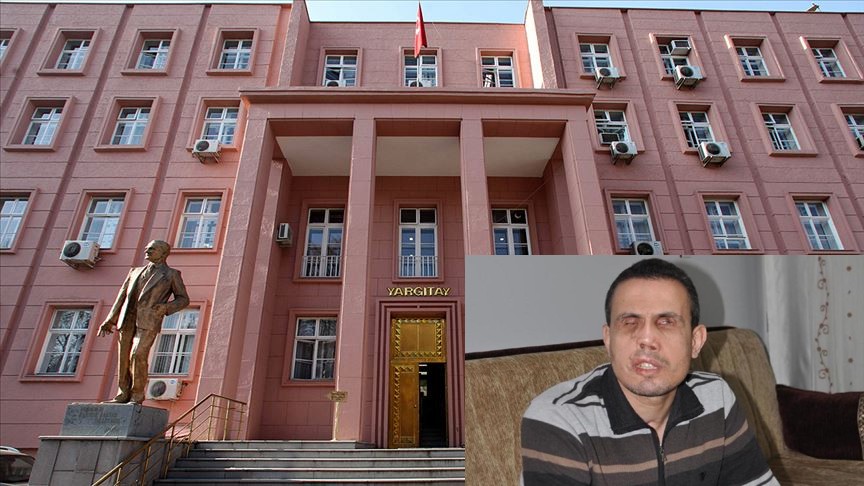Turkey’s Supreme Court of Appeals upheld a conviction and sentence on the charge of membership in a terrorist organization handed down to Bilal Konakçı, a bomb disposal expert with the police who lost his hand and was blinded in an explosion, the Stockholm Center for Freedom reported citing Bold Medya.
Konakçı was accused of links to the Gülen movement, a faith-based group inspired by Turkish cleric Fethullah Gülen, and was sentenced to seven years, six months by a local court.
Konakçı was a decorated police officer whose life was upended in 2009 after a bomb left in front of a school detonated while he was trying to defuse it. Besides losing his eyesight and right hand, he also lost some of the fingers on his left hand. He has difficulty walking as well as hearing loss.
He was arrested after a coup attempt in 2016 on charges of terrorism for having an account at Bank Asya, a commercial bank founded by businessmen affiliated with the Gülen movement, and for using the ByLock messaging app. He was released and placed under house arrest after remaining in police custody and in prison over a month.
Turkish President Recep Tayyip Erdoğan has been targeting followers of the Gülen movement since the corruption investigations of December 17-25, 2013, which implicated then-Prime Minister Erdoğan, his family members, and his inner circle.
Dismissing the investigations as a Gülenist coup and conspiracy against his government, Erdoğan designated the movement as a terrorist organization and began to target its members. He intensified the crackdown on the movement following an abortive putsch on July 15, 2016 that he accused Gülen of masterminding. Gülen and the movement strongly deny involvement in the abortive putsch or any terrorist activity.
Following the coup attempt the Turkish government accepted such activities as having an account at the now-closed Bank Asya, one of Turkey’s largest commercial banks at the time, and using the encrypted messaging application ByLock, which was available on Apple’s App Store and Google Play, as benchmarks for identifying and arresting alleged followers of the Gülen movement on charges of membership in a terrorist organization.
Konakçı’s release came after his ordeal was shared by some media outlets and notably by famous Turkish columnist Emin Çölaşan in the Sözcü newspaper, who said he was shocked by the blatant unlawfulness of the court’s decision to arrest Konakçı.
Çölaşan was later convicted of “aiding a terrorist organization without holding membership in it” for sharing letters from Turkish prisoners who were jailed for alleged membership in the Gülen movement, detailing their ordeals.
Kemal Karanfil, a former judge, said from his Twitter account that he could not understand how the Supreme Court of Appeals could uphold Konakçı’s sentence. He said a blind and partially amputated Konakçı could not possibly use a smartphone application. He added that the court did not provide any messaging content from the application and that the evidence suggesting he used the app was obtained illegally.
Karanfil added that presiding judge Erkan Özkaya was one of the founding members of the Association of Judicial Unity (Yargıda Birlik Derneği), an association composed of judges and prosecutors known for openly supporting the ruling Justice and Development Party (AKP) Karanfil said Özkaya could not be an impartial judge and that it was scandal he was appointed to such a case.
According to a statement from Turkish Interior Minister Süleyman Soylu on November 26, a total of 292,000 people have been detained while 96,000 others have been jailed due to alleged links to the Gülen movement since the failed coup. The minister said there are currently 25,655 people in Turkey’s prisons who were jailed due to links to the Gülen movement.
